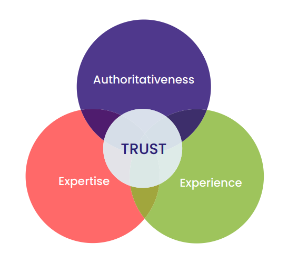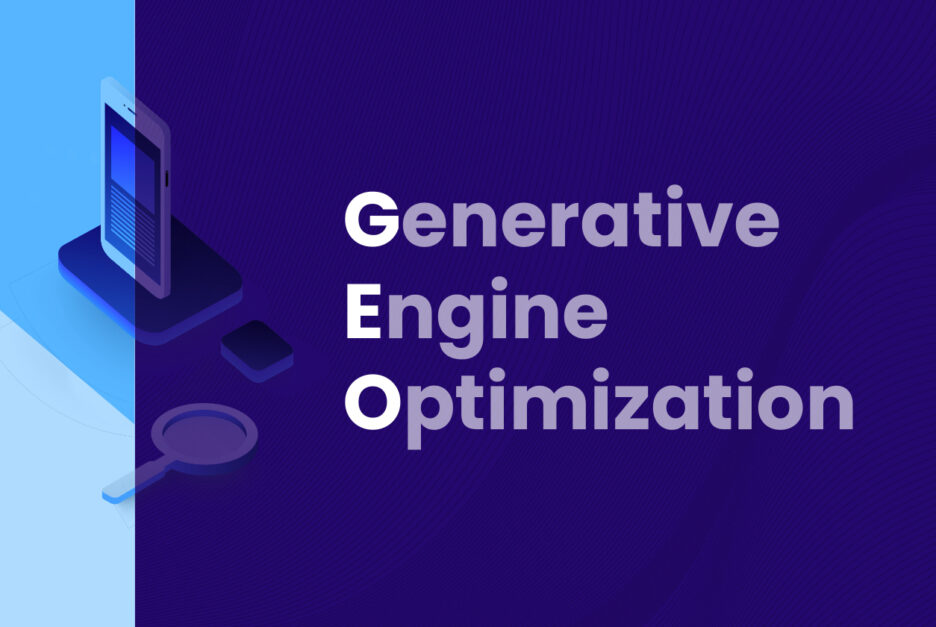The new era of search is here. Artificial intelligence is unlocking new ways for people to find information and solve problems, with greater speed and confidence than ever before. AI-powered engines and platforms are fundamentally changing the nature of online search as we know it.
It’s an exciting time. These emerging AI tools can do some really cool things. But for business leaders, it can also feel like a scary time, with your brand’s visibility and engagement at risk.
Understanding generative engine optimization and the unique (but not radically different) principles it entails will be very helpful in charting your marketing strategy’s future.
The good news is that if you’ve been developing a forward-thinking SEO strategy, you’re already on the right track, and if not, you aren’t yet too far behind.
Improve your SEO/GEO Performance in 2025
What is generative engine optimization (GEO)?
Generative engine optimization (GEO) refers to the practice of optimizing content specifically for AI-driven search engines and features, such as ChatGPT, Google AI Overviews, Perplexity AI, Copilot, Gemini, Llama, and more. This involves tailoring your content to show up in AI-generated summaries and results, by incorporating the qualities these search tools prioritize.
Generative engine optimization vs. search engine optimization
They have many overlapping elements, but GEO and SEO are distinct. While SEO largely focuses on traditional web optimization techniques like link-building, keyword placement and site structure, GEO is more narrowly concerned with the substance, makeup and credibility of the content itself.
In essence, GEO is about making your brand’s content stand out to intelligent technologies from a saturated information environment. Luckily, this is what modernized SEO strategies are already striving to do.
Benefits of generative engine optimization
The rise of generative search and GEO best practices can have very positive implications for brands. Here are a few worth mentioning:
Customers have new ways to find your brand. As more and more people start using these AI-powered tools and platforms, you have more pathways to impressions and engagement beyond traditional search engines.
Showing up in AI search makes a strong impression. At TopRank, we often remark that showing up near the top of a search for a target keyword is doubly beneficial: not only are you more likely to earn clicks, but you send a compelling signal to searchers, who recognize that Google heavily weighs credibility and authority of a source as SEO ranking factors. This can be even more true for generative AI engines, which scrutinize the distinct value of cited content as they synthesize and summarize.
Competitors are still catching up. Many companies still don’t have GEO in their marketing lexicon unless they’re talking about geographical regions. Optimizing for generative search as an extension of your SEO helps you stay ahead of the playing field.
GEO rewards audience-centered SEO strategies. If you’ve already been letting customer-centric elements like intent, usefulness, relevance and originality guide your SEO approach, your brand will be well positioned for the age of GEO.
With that in mind, let’s explore some GEO best practices, which are still taking shape but well informed by early data and research.
How to optimize content for generative engines
“Companies will need to focus on producing unique content that is useful to customers and prospective customers. Content should continue to demonstrate search quality-rater elements such as expertise, experience, authoritativeness and trustworthiness.” – Alan Antin, Vice President Analyst at Gartner (Source)
Optimizing content for AI means optimizing for humans first and foremost. At a high level, these are some of the qualities to prioritize in your brand’s content if you want to gain visibility with generative search engines:
- Comprehensiveness: AI-driven engines prioritize detailed, well-rounded content that thoroughly addresses the user’s query. Traditional SEO fixtures like structuring content with clear headings and questions, using schema markup, and including diverse forms of media will help your cause.
- Credibility and Relevance: Since AI engines favor content from trustworthy and relevant sources, it’s essential to build credibility through linking to reputable sources, regularly updating content, and strengthening your online reputation.
- User Intent Alignment: Tailor content to align with user intent by analyzing common search queries and SERP features. This might involve creating various forms of content, such as guides or FAQs, that address different aspects of a topic.
- Structure and Accessibility: While traditional SEO techniques like using meta tags and optimizing for mobile devices remain key, GEO also requires adapting content for newer technologies like voice search, and structuring content in formats friendly to natural language processing models.
You might ask, how can I bring these qualities forward in practical ways? Here are a few specific tips and techniques for GEO success:
Include verifiable statistics, quotes and citations.
A lack of reliable accuracy has been one of the biggest objections raised around AI-driven search tools. Accordingly, there’s a major emphasis on countering this perception. Generative engines want information that sends signals of trust, so the addition of substantiating elements like expert quotes and data-backed insights is powerful.
A research paper found that relevant statistics, quotations and citations can boost content visibility in generative engines by up to 40 percent.
Focus on E-E-A-T principles in your content.
I know, I know: another acronym? But believe us, with respect to GEO, adhering to the principles of E-E-A-T (expertise, experience, authority, trust) is VVI. (Very, very important.)
As Kody Van Sistine shares at Search Engine Land, “The more you sound like a trustworthy, authoritative, experienced expert in your content, the more humans and AI want to read, remember and rank your pieces.”

Fortify your brand’s online presence.
Optimize content for AI and generative engines is about more than the piece of content itself. It’s about the context surrounding it: the author, the domain, the brand itself. If your company has an untrusted reputation, or no real online reputation at all, you’ll find it difficult to gain traction with these engines.
“SEO professionals and businesses should invest in brand-building initiatives, collaborate with influencers, provide exceptional customer experiences, and consistently deliver valuable content,” recommends SEO expert Andrew Chadwick. “A strong brand can help mitigate the impact of algorithm changes and promote sustained visibility and growth.”
Stay adaptive with your strategy.
Generative engines and AI-driven search are still in their early days. This is an area that promises to evolve constantly in the months and years ahead. Keeping track of what’s happening, what’s changing, and what matters most requires a significant level of energy and experience.
We Track SEO and AI Trends to Future-Proof Your Strategy



